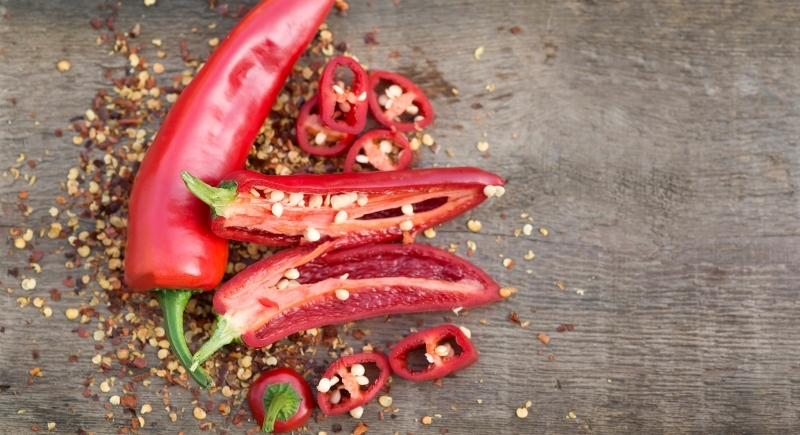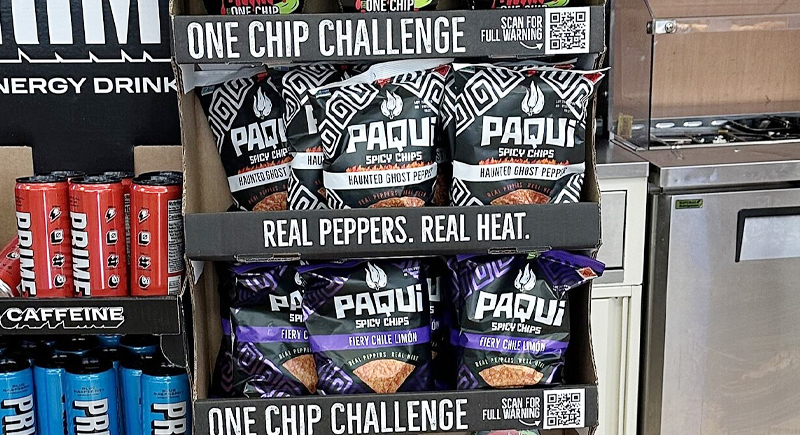Trying to Lose Weight This Summer? This Spice Might Help
Hot sauce lovers may already be onto something. That fiery kick from chili peppers could actually help you slow down at the dinner table and eat less without feeling deprived. Scientists have been investigating the effects of adding spices to our food, and the results may provide a new reason to sprinkle some paprika or toss in a few chili flakes.
Before dismissing spicy food as nothing more than sweat-inducing heat, it’s worth knowing how that burn could affect weight management and appetite control.
How Heat Slows You Down

Image via pixabay/Kirtip
A team of researchers at Penn State served more than 100 adults meals of beef chili and chicken tikka masala. Some versions were mild, while others had extra hot paprika to kick up the spice.
When meals were moderately spicy, people naturally ate more slowly and consumed about 11% to 18% less food by weight. The food still tasted just as enjoyable, but that little bit of heat gave participants a chance to process what they were eating.
Eating too quickly is tied to problems like obesity, as well as high blood pressure and elevated triglyceride levels. By stretching out the time food spends in your mouth, spicy meals increase sensory feedback to the brain and gut. That means you’re more likely to feel full before overloading your plate. Plus, people didn’t drink more water to compensate for the difference, so the effect wasn’t just about filling up on liquid.
The Role of Capsaicin

Image via Canva/Matthew Gibson
At the center of this fiery science is capsaicin, the compound that gives chili peppers their heat. Capsaicin has been studied for years, and supplements promise many benefits, including fat burning and appetite control.
While the supplements’ claims may be exaggerated, research shows that capsaicin can slightly boost metabolism by triggering thermogenesis, the body’s natural process of generating heat. Some laboratory studies even suggest it has anti-inflammatory effects.
However, it’s not a miracle weight loss ingredient. Experts emphasize that diet quality is the most critical factor. Adding a sprinkle of chili pepper to roasted vegetables is not the same as dousing fried wings in hot sauce every night.
Beyond the Waistline
The perks of spicy food don’t stop at appetite control. Extensive population studies suggest that people who eat spicy meals regularly may have a slightly lower risk of mortality, with chili pepper fans showing around a 10% to 12% reduced risk of death compared to those who avoid it.
On a lighter note, spice can also play tricks on your body in ways that aren’t harmful. Eating chili peppers can make you sweat because your brain thinks you’re overheating, but that sweat actually helps cool you down. Spicy meals can also make your tongue tingle and your nose run, sometimes even leaving you feeling more alert or uplifted. Some people describe a “spicy high,” but the idea that it comes directly from endorphins or dopamine hasn’t been firmly proven.
A Few Words of Caution

Image via Wikimedia Commons/Phillip Pessar
Spice isn’t for everyone. People with acid reflux, inflammatory bowel disease, or celiac disease may find that hot foods make their symptoms worse. Overeating before bed can also interfere with sleep. Plus, extreme spice challenges, like the “One Chip Challenge,” have been linked in rare cases to serious medical problems such as esophageal injury or heart strain. These are unusual, but they highlight the importance of moderation.
For most people, though, adding moderate spice is a safe and flavorful way to mix up meals. It may help you eat more mindfully and feel satisfied with smaller portions, while also offering a few extra health perks along the way.